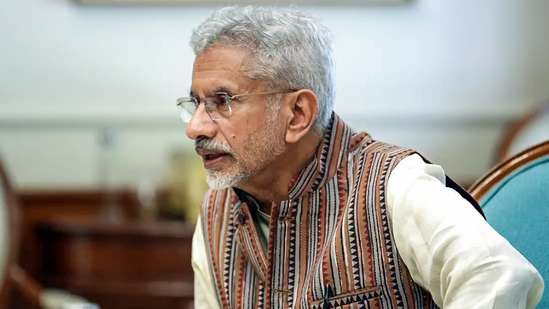Introduction:
India’s External Affairs Minister S. Jaishankar has reiterated that the recent truce between India and Pakistan was a strictly bilateral arrangement, emphasizing that no external party, including the United States, played a decisive role in brokering the agreement. His remarks came amid speculation about international involvement in easing tensions between the two South Asian neighbors.
Body:
During a recent press briefing, Jaishankar addressed growing questions regarding the nature of the ceasefire and diplomatic engagement between India and Pakistan. He underscored that the truce, aimed at reducing cross-border hostilities, was negotiated directly between the two countries without external mediation or pressure.
“The understanding reached between India and Pakistan was a bilateral decision,” Jaishankar stated firmly. “While various countries may express interest in regional peace, the agreement itself was crafted solely through direct dialogue between our two governments.”
This clarification comes at a time when geopolitical analysts and media outlets have speculated about the United States’ potential behind-the-scenes influence, especially given the Biden administration’s increased focus on South Asian stability as part of its broader Indo-Pacific strategy. However, Jaishankar’s comments clearly position India’s diplomatic engagement with Pakistan as autonomous, reaffirming India’s preference for handling bilateral issues directly.
The renewed truce between India and Pakistan follows months of heightened tension along the Line of Control (LoC), marked by intermittent ceasefire violations and cross-border skirmishes. Both nations have historically maintained a fragile ceasefire regime, which often falters due to unresolved disputes and mutual distrust.
Jaishankar highlighted that the current diplomatic efforts reflect India’s commitment to peace and stability in the region but insisted that any progress must respect India’s core security concerns. He reiterated India’s willingness to maintain dialogue with Pakistan “based on mutual respect and sovereignty,” emphasizing that no compromise will be made on national security.
Additionally, Jaishankar called for caution against external attempts to influence or dictate terms regarding South Asia’s security architecture. “The region’s peace must be charted by the countries involved,” he said, “not by external powers with competing interests.”
Experts note that India’s stance signals a strategic assertion of independence in foreign policy, especially in balancing relations with global powers while managing regional conflicts. The clarification from the External Affairs Minister also reassures domestic audiences wary of foreign intervention in sensitive bilateral issues.
Conclusion:
S. Jaishankar’s reaffirmation that the India-Pakistan truce is a bilateral arrangement with no substantive US role underscores India’s diplomatic resolve and commitment to managing its regional security autonomously. As the two neighbors cautiously navigate their complex relationship, this clear positioning reinforces India’s emphasis on sovereignty and direct dialogue as the foundation for lasting peace. Moving forward, the durability of the truce will depend on continued mutual engagement and adherence to the principles outlined by both governments.



